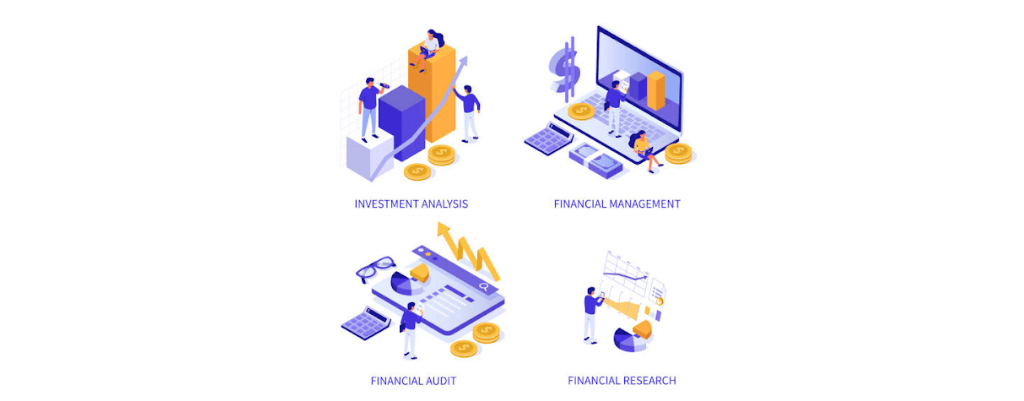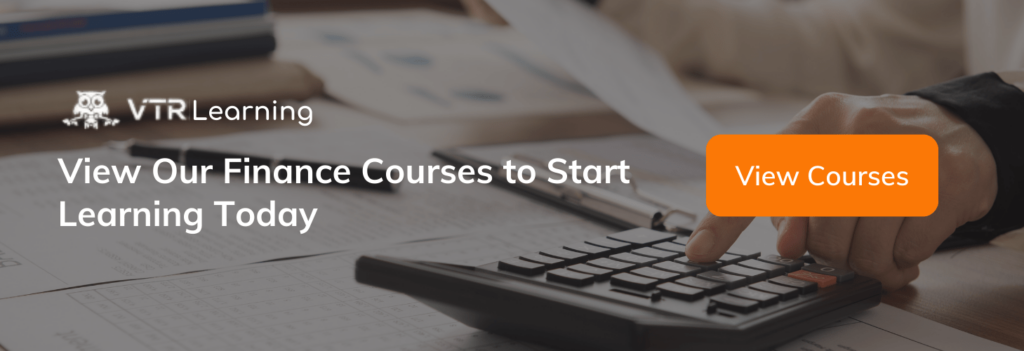
Various educational systems may hardly prepare us for real-world scenarios, especially with matters regarding our personal finances. But, know that you don’t have to be a financial expert to master some personal finance basics. A simple finance-101 guide can often help provide a wealth of valuable information.
The truth is that the finance sector is quite broad. So, knowing how or where to start might be challenging. However, once you grasp the basics, you should be good enough to manage your financial matters.
Essentially, the basics of a finance-101 guide include the process of money management. It also entails how you can make good use of the funds you generate. Failure to understand how to manage your finances can cost you much.
Financial statistics show that most Americans are horrified by the fact that the U.S. now has more than $30 trillion in debt. Fixing personal lifestyles and spending habits are the best ways to enact change.
In short, finance-101 basics include knowledge in areas like:
- Credit
- Banking
- Investment
- Assets and liabilities
Mastering the basics in the mentioned areas is crucial to your overall financial health. It also benefits those looking to invest in online businesses and physical stores. So, what do you need to know that will significantly impact your financial matters?
Here goes the important finance-101 guide everyone should learn.
What Are the Finance-101 Basics You Should Know?
1. Find Out How the Credit Cards Work
Knowing how to establish your credit and take responsibility for payments is essential. The lack of proper information is what messes up a lot of people. it all boils down to:
- Not understanding how to use a credit card properly
- Failure to understand how interest rates work
Learning such vital information is essential before getting a credit card. This will help you sustain money in your pockets and also enable you to stay debt-free.
So, ensure you take some time to read and understand what revolves around any credit card application. Prioritize the following:
- Carry out your research on the credit card company
- Find out more about the specific card’s account features and benefits
- Check keenly any fees available
- Be sure that you are financially prepared to take every responsibility that comes with the credit card
When handled correctly, credit cards can be beneficial financial tools. By understanding the best ways to use a credit card, you can:
- Manage your finances correctly
- Build up your credit history
- Benefit from fraud and purchase protection, depending on the type of credit card you use
But, many people make the mistake of overspending, only to end up with credit card debt. In fact, credit card debt is on the rise, with 37% of Americans reportedly taking on more credit card debt. To avoid such mistakes, please check the tips below before deciding to sign a credit card agreement.
- Avoid going for several credit cards.
- Never get a new card just because the other one is maxed out. Instead, set up a working budget that allows you to pay it off.
- Only go for a new credit card to get the needed benefits that are not available on the old card.
- Try to attain a lower credit card utilization rate around the billing cycle.
2. Check and Recheck the Interest Rate on Your Credit Cards
Usually, many cards might entice you with an APR or introductory interest rate of 0%. It may look like a great deal at that moment, but you may not know the trick behind this.
So, ensure you can pay off your balance during the promotion. After that, you might be forced to pay off your card with a new interest rate, which could be higher than you thought. It can even get to 25% or more.
Even if a credit card offers a promotional rate, ensure you research the interest rate once the promotional period ends. Look around and find the lowest interest rate possible that you qualify for. This will save you additional costs in the long-run.
Some essential tips to reduce interest on your credit card include:
- Work on making multiple payments every month
- Don’t put medical expenses on your credit card
- Consider debt consolidation with a 0% interest on balance transfer
- If you constantly hold a balance, consider using a low-interest credit card for your future spending.
3. Work on Fixing Your Credit and Maintaining a Good Credit History and Scores
This is one of the top finance-101 basics everyone needs to master. The best way to attain lower credit card rates is maintaining a higher credit score. This means:
- You don’t use too much of you credit
- You make timely payments
Note that it will become hard to hit your financial goal with a poor credit record. this is one significant consideration. It would help if you looked into ways to boost your credit rating.
Usually, lenders will use your credit record to decide whether they will do business with you or not. Poor credit record is why 53% of Americans were denied loans in 2019.
So, if the success of your loan and credit card applications will mostly depend on how good your credit score is. If you’re a poor credit history consumer, you must work towards mending this record.
The best way to do this by seeking the best and cheapest credit repair services. Generally, this presents an ideal route toward attaining the highest credit score possible. In fact, you can even get an excellent 850 credit score. As a result, you get to improve your financial situation.
A top-rated credit repair company can help you get on track for a healthy financial future. Working with such credit professionals is one excellent decision you can make. Usually, the credit professional will help you spot the sources of your poor credit history. And these are the things that could be lowering your credit scores.
The credit repair affiliate company will ensure the negative ratings are eliminated from your credit report. Part of the credit repair services for attaining an excellent credit score is ensuring they:
- Fix credit review
- Perfect your credit score
- Remove the collection account from your credit report
- Remove paid collection account from the credit report
4. Know How to Balance a Checkbook
Balancing your checkbook is an important finance-101 skill, and you must know how to do it. It can be highly beneficial to learn the art of money management – understanding the amount in your checking account and learning about overdraft fees. This is also about budgeting matters.
If you don’t like using a checkbook, you can opt for banking apps. But, ensure you keep tabs on whatever is in your account(s). This will benefit you with your budgeting.
5. Understand the Budgeting Basics
Budgeting is a finance essential everyone should master, but many find it overwhelming. However, it’s a crucial skill that you need to develop early enough. Because it can save you from future possible financial headaches.
Take time and reflect on your budgeting in areas like:
- Bills
- Living expenses
- Your expenditure
- Your savings
You can write down everything and use a budget calendar to put up your budgeting plan.
6. Investment and Stock Market Basics
Investing in the stock market is also an essential part of your finances. Because it contributes to building your wealth and safeguarding your future retirement. So, don’t fear investing in the stock market.
Start with the basics and discover how it works. Later, proceed to the management of your investment portfolio. The best part is that; you can self-learn through websites, investment books, or by reaching out to someone trustable that has been investing for several years.
7. Debt Management
At some point, everyone tends to have some debt somewhere. It may from credit cards, personal loans, or mortgages. Whichever the debt type, it’s essential to learn how to manage your debts from the start.
Ensure you understand how different debt types work, their interest rates, and how to pay off the debt faster. It also helps to know how to avoid high-interest debts.
Get to know why paying the minimum amount for your loan each month can:
- Slow down the payments
- Cost you a lot of money in the long-run
And lastly, ensure you find out the various debt payoff techniques.
8. Spend Less Than What You Earn
The truth is that; the majority of people fall into the trap of finances without knowing how. Failure to live within your means can put you into trouble. And if you don’t observe your spending habits, you may quickly pile up debts or have little to no money for savings.
Always try to avoid living a lifestyle you can’t afford and stick to your financial means. That way, you can easily maintain financial security.
9. Manage Your Net Worth
When you reflect on your personal finances, ensure you also continue to monitor your net worth. Your net worth equals the value of all your assets, not including all your present liabilities.
Initially, it was a big task calculating your net worth. But fortunately, technology can now guide you on how to calculate your net worth quickly. Managing your net worth enables you to see the broader picture of your financial matters and ensures you maintain excellent financial health.
Wrapping Up Our Finance-101 Tips
Financial matters are factors that you should never ignore throughout your life, from basic budgeting to complex forecasting. Understanding personal finance basics and mastering critical money skills will set you up to enhance your overall financial wellness.
Hopefully, our finance-101 guide can benefit everyone trying to manage their funds appropriately. Take time and ensure you master every element. Looking back, you’ll be thankful that you took the time to grasp these basic yet fundamental financial items. And if you want to know more, we have various online finance courses to build on this foundation.
Last Updated:
This article was written and contributed by Dan M. Dan has hands-on experience in digital marketing since 2007. He has been building teams and coaching others to foster innovation and solve real-time problems. Dan also enjoys photography and traveling.





![Link Building Strategies for SEO [5 Great Methods]](/wp-content/uploads/2022/08/Strategies-for-Link-Building-SEO.png)